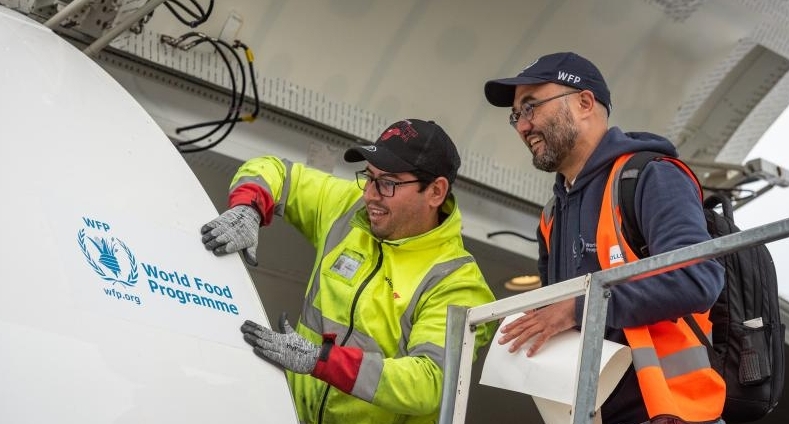WFP launches passenger air service for humanitarian, health workers in Tanzania
On 15 May, a passenger flight ferrying humanitarian and health workers into Tanzania arrived from Addis Ababa in Ethiopia.

May 16, 2020: On 15 May, a passenger flight ferrying humanitarian and health workers into Tanzania arrived from Addis Ababa in Ethiopia. This is the first flight of its kind since commercial air services were suspended in Tanzania in an attempt to curb the spread of the coronavirus
The passenger air service, run by the United Nations World Food Programme (WFP), is part of its global system to provide logistics support for the global Covid-19 response. The service ensures humanitarian organisations can provide the people and cargo needed to sustain assistance operations that millions of vulnerable people depend on across the world
The air bridge system is based around Global Humanitarian Response Hubs in Guangzhou (China), Liège (Belgium), and Dubai (UAE) where supplies are being manufactured – and regional hubs in Ethiopia, Ghana, South Africa, Malaysia, Panama, and Dubai. Flights operate between global and regional hubs, and a fleet of smaller planes move cargo and humanitarian personnel into specific countries, such as Tanzania. Once the service is fully operational, WFP expects to maintain regular flights to key locations around the world.
“As the leading UN agency for logistics, WFP has a key role to support the Government and the whole humanitarian community in ensuring supplies and staff are able to reach where they are needed,” said Michael Dunford, WFP representative in Tanzania. “Our experience in running logistics operations has allowed WFP to adapt our programmes to provide common logistics services to support global humanitarian and health response.”
In Tanzania, flights for humanitarian and health workers are expected to take place every week. Upon arrival in Tanzania, passengers will follow the government of Tanzania’s regulations for quarantine.


